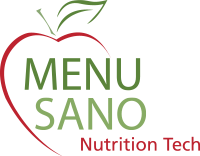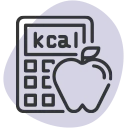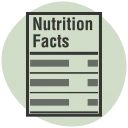Ensuring food safety is paramount in the food manufacturing industry. Compliance with food safety regulations not only protects consumers but also preserves a brand’s integrity and prevents costly legal issues. This comprehensive guide outlines the key aspects of food safety regulations that every food manufacturer must understand.

Key Regulations for Food Manufacturers
United States: FDA Regulations
The FDA sets stringent regulations to ensure that all food products meet safety standards, protecting public health and maintaining consumer trust.
- Food Safety Modernization Act (FSMA):
The FSMA, enacted in 2011, focuses on preventing foodborne illnesses by shifting the emphasis from response to prevention. It mandates preventive controls for human and animal food, including thorough hazard analysis, risk-based preventive controls, and robust supply chain management practices.
- Current Good Manufacturing Practices (cGMPs):
These regulations ensure food is processed, packed, and held under sanitary conditions to avoid contamination. They cover aspects such as sanitation, employee hygiene, equipment maintenance, and meticulous record-keeping. For example, a food manufacturing facility must implement rigorous hygiene practices, such as regular employee handwashing protocols, to prevent contamination. Additionally, cGMPs require that equipment used in the production process is regularly cleaned and sanitized, ensuring that all surfaces that come into contact with food are free from harmful pathogens.
- Food Labelling Requirements:
The FDA mandates clear and accurate labelling to inform consumers about the products they purchase. This includes the nutrition facts panel, ingredient lists, allergen declarations, and specific health claims. MenuSano ensures compliance with the latest labelling regulations, providing up-to-date and accurate information. Our intuitive software simplifies the process, allowing you to quickly and easily create detailed nutrition facts labels.
More on FDA regulations for nutrition facts labels.
- Food Additives:
The FDA regulates food additives to ensure they are safe for consumption. Food Manufacturers must demonstrate the safety of new additives before they can be used in food products. For example, before a new food additive can be used, the manufacturer must submit a detailed petition to the FDA, including scientific data demonstrating the additive’s safety under its intended conditions of use. This data might include results from toxicological studies and information on the additive’s chemical composition. The FDA then conducts a thorough review of this evidence, and if the additive is deemed safe, it is approved and added to the list of permissible substances, often with specific usage guidelines and limitations to protect consumer health.
Canada: CFIA Regulations
The CFIA establishes and enforces regulations to ensure that all food products, whether domestically produced or imported, meet strict safety standards.

- Safe Food for Canadians Regulations (SFCR):
Implemented in 2019, SFCR consolidates various regulations into a unified framework. It encompasses licensing, preventive controls, traceability, labelling, and advertising, focusing on preventing food safety risks throughout the supply chain. For example, under the SFCR, a food manufacturer must implement a preventive control plan (PCP) that identifies and addresses potential hazards in their production process. This plan might include measures such as regular monitoring of critical control points, thorough cleaning and sanitation procedures, and employee training programs to ensure proper handling and processing of food products.
- Food Labelling and Advertising:
The CFIA regulates labelling and advertising to ensure accuracy and transparency, including bilingual labelling (English and French), allergen declarations, and nutrition labelling. For example, a cereal manufacturer must include detailed nutritional information on the product’s packaging, such as the amounts of calories, sugars, fats, and vitamins per serving. Additionally, any health claims made in advertisements, like “boosts immunity” or “supports heart health,” must be supported by scientific evidence and comply with regulatory guidelines to prevent misleading consumers. These regulations help maintain transparency and allow consumers to make informed choices about their food.
- Food Additive Regulations:
CFIA oversees the use of food additives to ensure they are safe for consumption, requiring manufacturers to adhere to prescribed limits and demonstrate additive safety. For example, if a beverage manufacturer wants to use a new sweetener, they must first get it approved by Health Canada. This involves submitting scientific data proving the sweetener’s safety and specifying the acceptable levels for use in their products. Once approved, the additive must be listed clearly on the beverage’s ingredient label, allowing consumers to be fully informed about what is in their drinks.
Read more: Creating Compliant Nutrition Fact Labels in Canada
How Can Food Manufacturers Navigate Food Safety Regulations?
Both the FDA and CFIA conduct inspections and audits to ensure compliance, with consequences for non-compliance ranging from warnings and fines to product recalls and legal action.
Adhering to food safety regulations is crucial for food manufacturers to ensure consumer safety and maintain compliance with legal standards. By understanding and implementing these regulations, manufacturers can protect their customers, enhance their brand reputation, and avoid costly penalties. Stay informed and proactive in maintaining food safety to support overall health and consumer trust.
Feeling overwhelmed? Want to concentrate solely on your cooking? Give MenuSano a try! We handle all the calculations for you, so you can focus on what you love. Start your free trial today or Schedule a Demo!



















